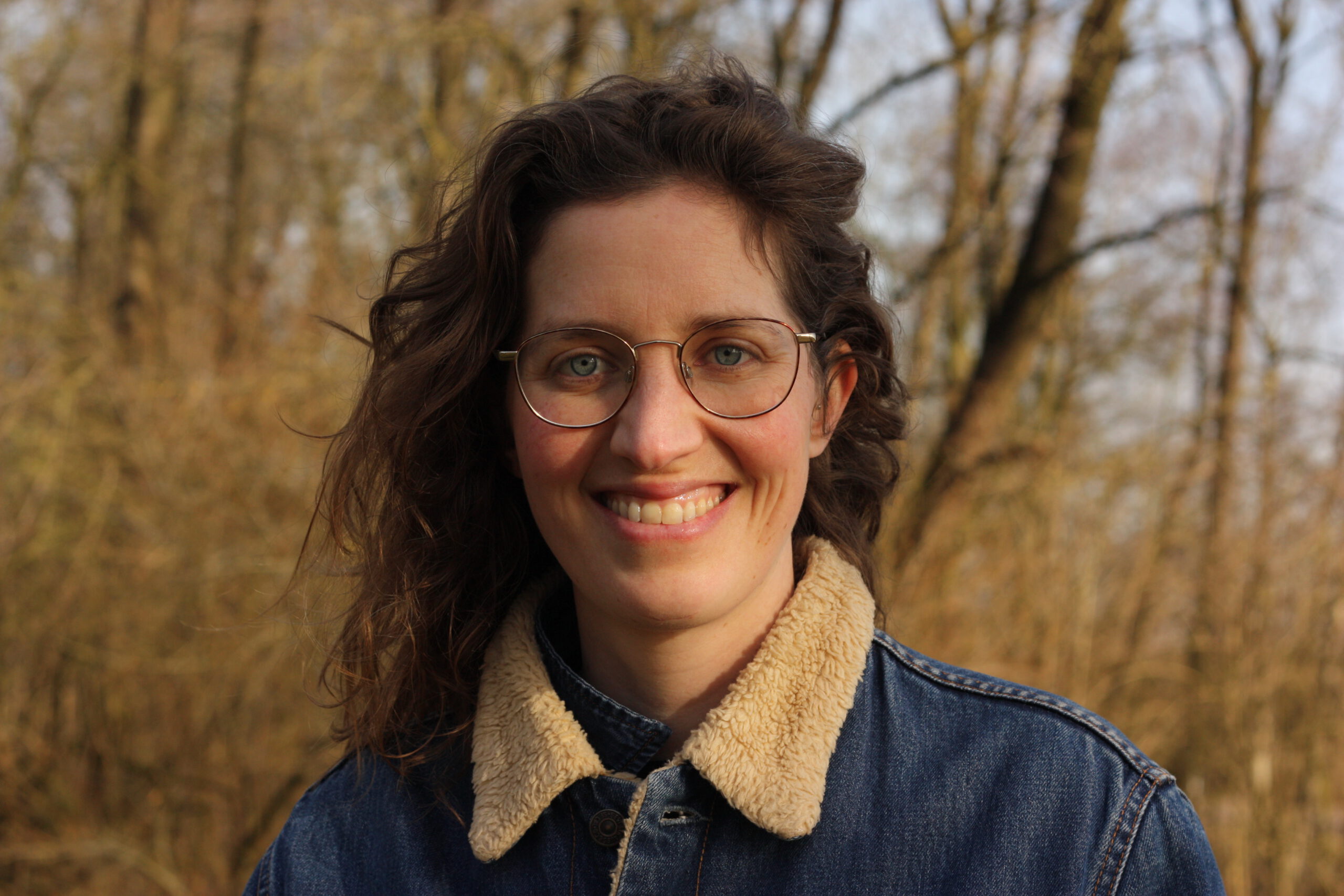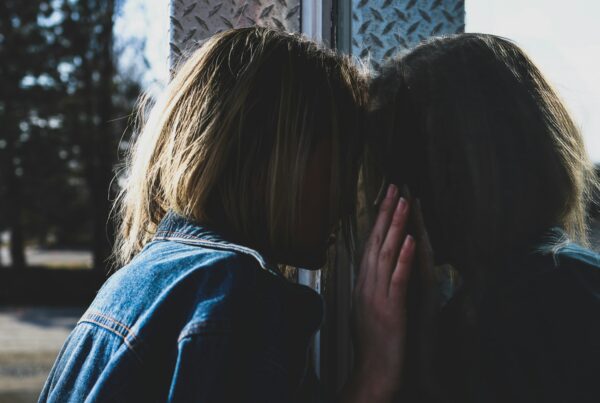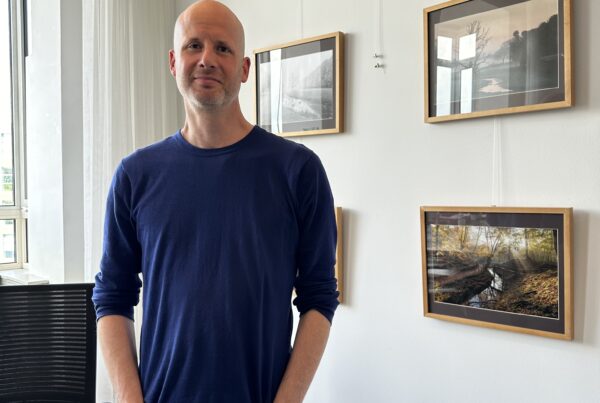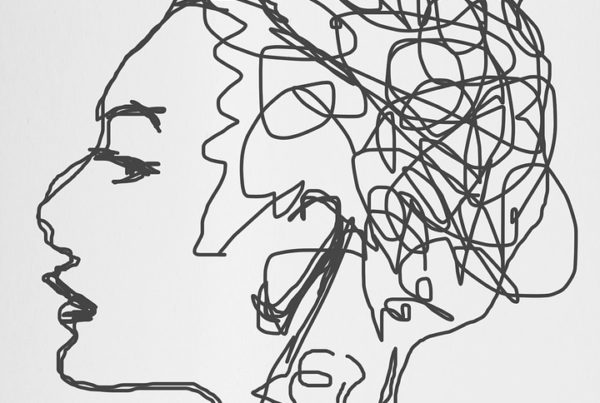
For this issue’s Office Hours, Spiegeloog talked to Titia Beek. Titia Beek has obtained her Bachelor’s and Master’s degree at the UvA, specializing in social and developmental psychology. She worked as a research assistant at the VU medical center, researching the proposed criteria for gender incongruence in the International Classification for Diseases (ICD-11). Now she works as a didactic supervisor and a tutorial teacher for second-year psychology students here at the UvA.

How are you managing to find a balance between online teaching and homeschooling your own children?
‘I’ve slightly gotten used to online teaching, but not completely. I still miss face to face teaching a lot. To ward off negative thoughts, I try not to look too far ahead of time. Instead I try to make the best of the day or of the tutorial. Also, because I don’t have to commute to the university, I save some extra time that I can spend with my two children. I have also started taking walks, which progressed into running. Before the pandemic, I used to play field hockey, so I prefer team sports, but this is of course not possible right now.’
Is there something you like or enjoy about online teaching?
‘Although I primarily enjoy teaching in a physical setting, there are some moments I cherish during online teaching as well. For instance, when I put students in breakout rooms during tutorials and visit the rooms unexpectedly, I love to see how determined the students seem in doing the exercises, wanting to learn and progress. Of course, not all students are the same and sometimes I see they are a bit distracted in those breakout rooms, but most of the students are active, motivated and trying to make the best out of the time they have. I admire the sight of this.’
What is something positive that you learned during the pandemic?
‘I learned that I am very grateful for my own social support system. It is not something new, but definitely something I appreciate. Not everyone has it, and this comes on a small, personal scale, between students, but also on a larger scale, between schools. So I think about people who are just struggling because they don’t have a safe, supportive, financially secure family around them and all the technology available to study from home, and therefore they start to lag behind. This inequality is growing because of COVID, and for me this signifies that it should be each country’s responsibility to take care of all its citizens.’
What are your plans after this pandemic – do you plan to go back to research, or will you stick to teaching and supervising?
‘I have been thinking about this a lot. I definitely enjoy teaching, and would like to continue doing it. I discovered that I love sharing scientific knowledge to a broad audience. However, I would like to do some research in social psychology, perhaps about interventions, to improve certain aspects of society. This could be about something as small as picking up litter, or more broad such as discrimination, inequality or bullying, and how to prevent that. I am open to what the future will bring.’

How are you managing to find a balance between online teaching and homeschooling your own children?
‘I’ve slightly gotten used to online teaching, but not completely. I still miss face to face teaching a lot. To ward off negative thoughts, I try not to look too far ahead of time. Instead I try to make the best of the day or of the tutorial. Also, because I don’t have to commute to the university, I save some extra time that I can spend with my two children. I have also started taking walks, which progressed into running. Before the pandemic, I used to play field hockey, so I prefer team sports, but this is of course not possible right now.’
Is there something you like or enjoy about online teaching?
‘Although I primarily enjoy teaching in a physical setting, there are some moments I cherish during online teaching as well. For instance, when I put students in breakout rooms during tutorials and visit the rooms unexpectedly, I love to see how determined the students seem in doing the exercises, wanting to learn and progress. Of course, not all students are the same and sometimes I see they are a bit distracted in those breakout rooms, but most of the students are active, motivated and trying to make the best out of the time they have. I admire the sight of this.’
What is something positive that you learned during the pandemic?
‘I learned that I am very grateful for my own social support system. It is not something new, but definitely something I appreciate. Not everyone has it, and this comes on a small, personal scale, between students, but also on a larger scale, between schools. So I think about people who are just struggling because they don’t have a safe, supportive, financially secure family around them and all the technology available to study from home, and therefore they start to lag behind. This inequality is growing because of COVID, and for me this signifies that it should be each country’s responsibility to take care of all its citizens.’
What are your plans after this pandemic – do you plan to go back to research, or will you stick to teaching and supervising?
‘I have been thinking about this a lot. I definitely enjoy teaching, and would like to continue doing it. I discovered that I love sharing scientific knowledge to a broad audience. However, I would like to do some research in social psychology, perhaps about interventions, to improve certain aspects of society. This could be about something as small as picking up litter, or more broad such as discrimination, inequality or bullying, and how to prevent that. I am open to what the future will bring.’



